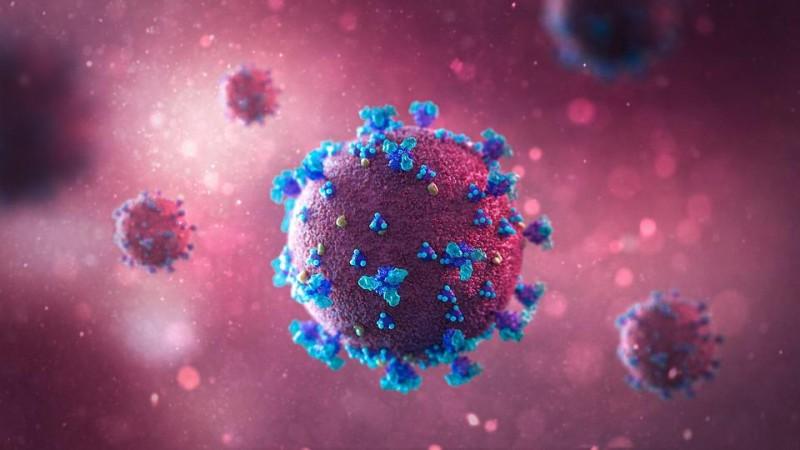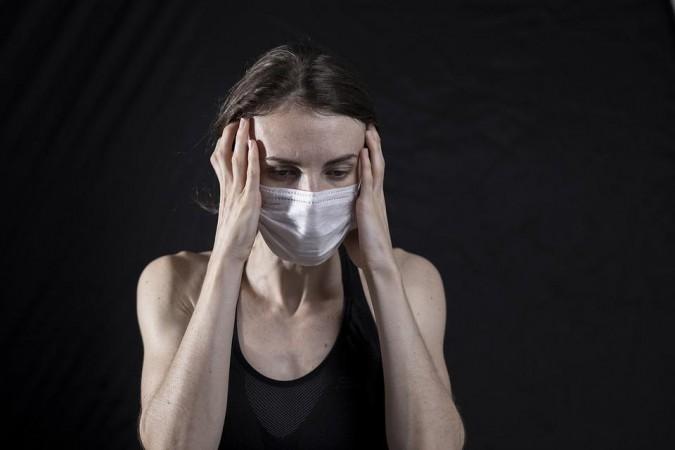Surviving COVID-19 and living to tell the tale has been nothing short of a miracle for some. However, millions of survivors across the world continue to report lingering symptoms and after-effects of the disease, also known as 'long-COVID'. Now, scientists have reported that individuals who were hospitalized on account of the SARS-CoV-2 virus-caused infection show limited recovery even after one year.
In a new pre-print study, researchers have found that patients who received care at hospitals for COVID-19—who complained of ill-health after five months—show limited further recovery even after one year. Using data from UK's Post-hospitalisation COVID-19 (PHOSP-COVID) study, the team learnt that patients showed lower likeliness of recovery if they were obese, female, and had required invasive mechanical ventilation (IMV) during their hospital stay.
"The PHOSP-COVID study has identified persistent long term health effects in many patients who required treatment in hospital for COVID-19. It is now beginning to investigate the reasons underlying these persistent effects. Such understanding is essential if we are to develop better ways to help this patient group," said Dr. Mark Jones, principal investigator of the study, in a statement.
Feeling Unwell After Recovery

Long COVID—the persistence of symptoms for four or more weeks after being infected with SARS-CoV-2—has been found to leave survivors battling several other ailments. Some of them include fatigue, headache, changes/loss in smell or taste, difficulty in breathing and shortness of breath, and brain fog (difficulty in concentrating or thinking), among others.
The PHOSP-COVID study, which involved researchers from 53 institutions and 83 hospitals across the UK, examined 2,230 adults throughout the country who had been hospitalized due to COVID-19. Over a third of these participants (807) have completed five-month and 12-month evaluations.
In order to measure recovery, the authors used patient-reported data, physical performance, and organ function tests. Of the 807 participants, 35.6 percent were female while 27.8 percent had received IMV. It was found that one year following their discharge from the hospital, less than three out of 10 patients (232/804; 28.9 percent) reported feeling fully recovered. This remained largely unaltered from 2.5 in ten (501/165; 25.6 percent) during the five-month assessment mark.
Addressing Long-term Effects

Among the patients feeling the burden of long-COVID, breathlessness, fatigue, muscle pain, and poor sleep were the most common symptoms. Patients who showed lower likeliness of full recovery were those who were female, obese, and had received IMV to assist with their breathing while hospitalized.
"We urgently need healthcare packages and medicines that target the potentially treatable traits of Long-COVID to help people feel better and get back to their normal lives. Without these, Long-COVID has the potential to become highly prevalent as a new long-term condition," stated Dr. Rachael Evans, co-lead author of the study.
However, Dr. Louise Wain, co-lead author of the study, expressed that the findings shed more light on COVID-19's effect post-recovery on a serological level. She opined: "The good news is that we have identified some differences in the blood samples of those who are still experiencing the long-term physical and cognitive effects of their COVID-19 hospital admission. "
Dr. Wain also noted that the study offers hope for better treatment in the future. "These differences give us clues about the potential underlying mechanisms and suggest that we may be able to use existing medicines that target these mechanisms to help these subgroups of patients," she concluded.

















